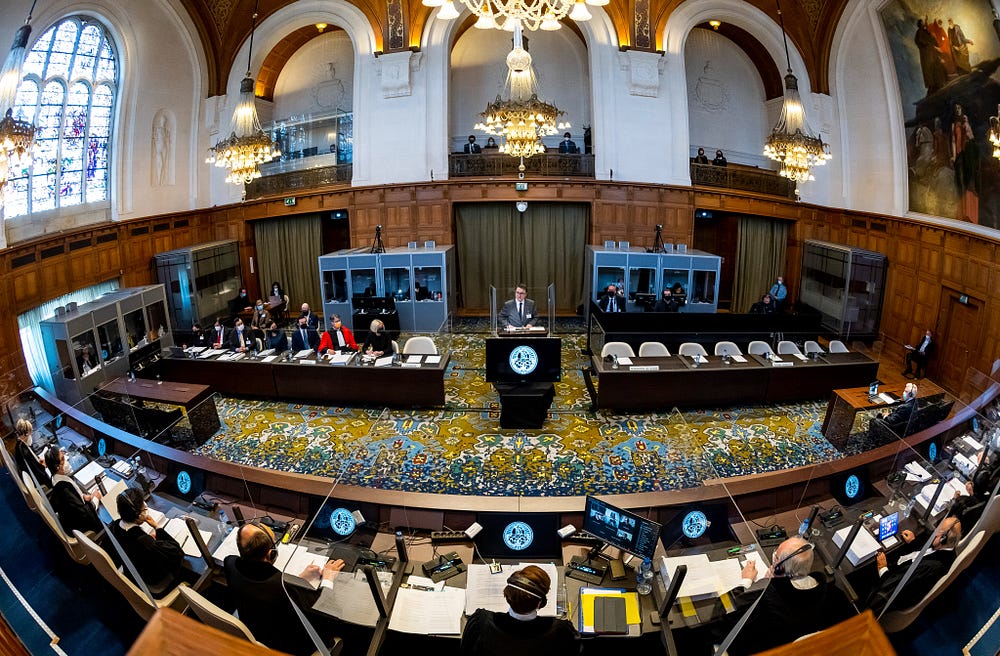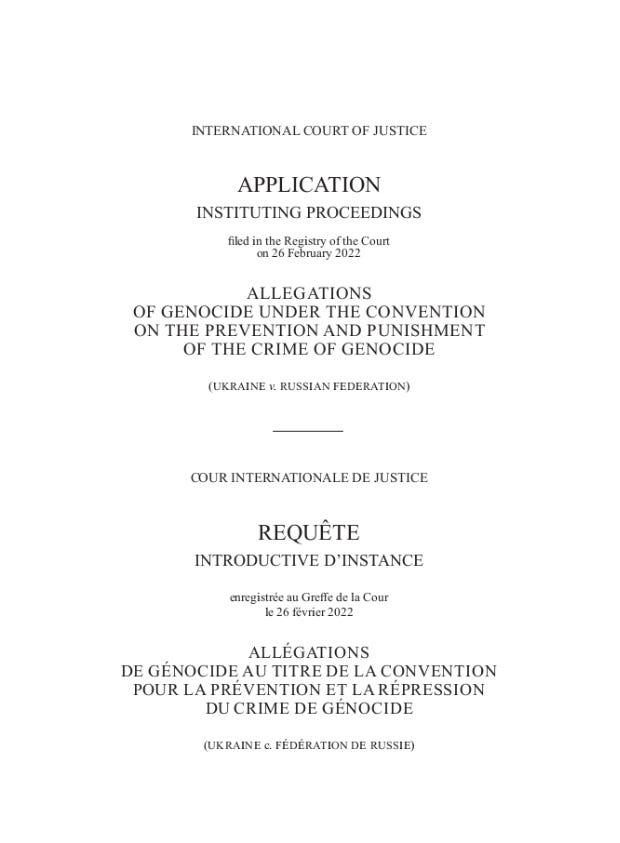Case Concerning Allegations of Genocide under the Convention on the Prevention and Punishment of the Crime of Genocide (Ukraine v. Russian Federation): What We Know So Far - Dr Wole Kunuji

Summary of the Facts
On the 26th of February 2022, the Government of Ukraine submitted, to the International Court of Justice, an application instituting proceedings against the Russian Federation. The application pertains to the appropriate “interpretation, application, and fulfilment” of certain provisions of the 1948 Genocide Convention, and was brought pursuant to Articles 36(1) and 40 of the Statute of the International Court and Article 38 of its Rules of Court.

According to the application, Ukraine avers that Russia’s recent invasion of its territory is based on spurious allegations of genocide committed by Ukrainian forces in the Donbas region of Eastern Ukraine, particularly in the Donetsk and Luhansk oblasts. Ukraine claims that based on these allegations, Russia proceeded to forcefully and illegally launch a “special military operation” in Ukrainian territory to prevent and punish the alleged acts of genocide. Ukraine vehemently denies that it committed acts of genocide in Donetsk and Luhansk. Ukraine argues that Russia’s spurious allegations of genocide committed by Ukrainian forces in the Donbas region are in fact a pretext for war, and are designed to justify a military invasion that has, as its main purpose, the illegal annexation of Ukrainian territory.
Issues for Determination
In our opinion, there are two questions which the International Court must resolve on the merits in order to satisfactorily dispose of the issues raised in the application brought by Ukraine:
(i) Whether acts of Genocide, as defined in Articles II and III of the Genocide convention have indeed been committed by Ukraine in its Luhansk and Donetsk communities in the Eastern Donbas region?
(ii) If the answer to question (i) above is in the affirmative, the other question then would be whether, taking into consideration Articles I and VIII of the Genocide convention, the Russian Federation can unitarily undertake military action in Ukraine to prevent and punish acts of genocide so committed?
Jurisdiction
The jurisdiction of the International Court in this case is established by Article 36(1) of the Statute of the ICJ and Article IX of the 1948 Genocide Convention. Ukraine and the Russian Federation are both parties to the Genocide Convention.
Summary of Reliefs Sought by Ukraine
Through this application, Ukraine is asking the International Court to declare that there is no basis, under the Genocide convention, for Russia’s military invasion of Ukraine. The Court is to also order the Russian Federation to make appropriate reparations for damage done to Ukrainian territory as a result of its actions.
In the interim, considering the urgency of the situation, Ukraine urges the Court to indicate provisional measures, pursuant to Article 74(4) of its Rules of Court, in order to avoid foisting a fait accompli on the Court. Specifically, Ukraine urges the court to restrain the Russian Federation from continuing with its military operations in Ukrainian territory. On the 16th of March 2022, the Court acceded to Ukraine’s request and indicated provisional measures ordering Russia to immediately suspend its military action in the territory of Ukraine pending the determination of the substantive suit before the court.
Declarations of Intervention
Pursuant to Article 63 of the Statute of the ICJ, Latvia, Lithuania, New Zealand, UK, Germany, U.S, and Sweden have all filed Declarations of Intervention in the matter, indicating their interest in any construction that might be placed on the relevant provisions of the Genocide Convention by the Court in this case.
Comments
Post a Comment